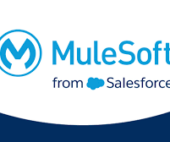Transforming Business with Agentforce Agents
Agents are autonomous software systems that assist users by reasoning, planning, and taking actions based on user input or environmental conditions. These digital assistants combine expert knowledge with access to relevant data to achieve specific tasks or goals, resembling intelligent digital assistants in their function and scope. Agents are poised to become integral to everyday life, reshaping how businesses operate and engage with customers. For instance, a service agent can act as a company’s most knowledgeable support representative, available around the clock. A marketing agent, similar to a self-driving car, can respond to real-time business conditions by proactively adjusting pricing or launching campaigns. This article explores the AI advancements driving the rise of agents and how these systems are transforming businesses while revolutionizing software development. Powered by Large Language Models (LLMs) Agents are powered by large language models (LLMs), which provide two key capabilities: However, LLMs alone have limitations, including: A New Software Paradigm Agents bridge the gap between the language capabilities of LLMs and the practical needs of businesses, introducing a new approach to software. Instead of building full-fledged applications, companies can develop granular building blocks of functionality, referred to as actions, which can be orchestrated by agents. In Salesforce, these actions (such as “Locate Order” or “Change Order Address”) are grouped under functional areas known as topics (e.g., “Order Management”). An agent operates by: The Ultimate Application Composition Platform This new paradigm allows agents to handle requests that weren’t anticipated in advance, solving problems on the fly by composing actions in novel ways. For example, Salesforce’s Agentforce agents can access a wide range of actions across Sales Cloud, Service Cloud, Marketing Cloud, Commerce Cloud, and more. Developers can further extend the agents’ capabilities with custom actions built via code, APIs, or prompt templates. Agents gain essential capabilities through actions, including: Levels of Autonomy Agents can operate at varying levels of autonomy: Regardless of their autonomy, establishing guardrails is essential for maintaining reliability, security, and business practices. Agentforce uses a multi-layered approach to enforce these guardrails, including the Einstein Trust Layer, which secures LLM interactions, and Agentforce Analytics, which provides insights into performance and reliability. Ready-to-Use Agents for Sales and Service Salesforce has introduced prebuilt agents, including: Creating and Customizing Agents with Agentforce Salesforce’s Agentforce empowers users to create, customize, and deploy agents that combine AI, data, and actions. Key components of this platform include: Conclusion: Transforming Business with Agentforce Agents Agents are becoming pervasive, changing how businesses operate by enabling systems to reason, take action, and provide personalized experiences. Agentforce Agents lead this transformation by being: As businesses evolve, Agentforce Agents are at the forefront of creating a more efficient, intelligent future. Like1 Related Posts Salesforce OEM AppExchange Expanding its reach beyond CRM, Salesforce.com has launched a new service called AppExchange OEM Edition, aimed at non-CRM service providers. Read more The Salesforce Story In Marc Benioff’s own words How did salesforce.com grow from a start up in a rented apartment into the world’s Read more Salesforce Jigsaw Salesforce.com, a prominent figure in cloud computing, has finalized a deal to acquire Jigsaw, a wiki-style business contact database, for Read more Service Cloud with AI-Driven Intelligence Salesforce Enhances Service Cloud with AI-Driven Intelligence Engine Data science and analytics are rapidly becoming standard features in enterprise applications, Read more







